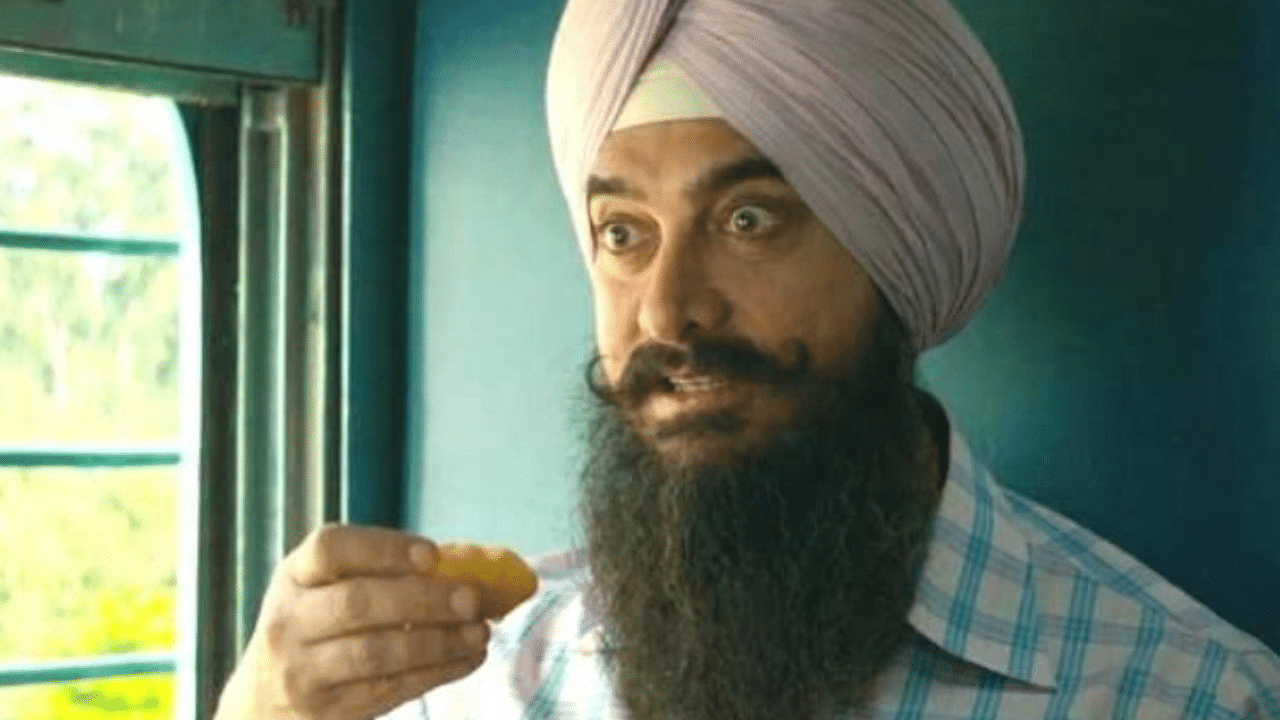
'Never touch a classic’, a common adage among cinegoers these days finds a counter in the Atul Kulkarni-Advait Chandan-Aamir Khan trio's ‘Laal Singh Chaddha’, as it proves that a classic can be explored if the attempt is sincere, thoughtful and sensible.
Without much changes to the original 1994 Hollywood comedy-drama ‘Forrest Gump’, its Hindi adaptation, written by acclaimed actor Atul, ‘Indianises’ the tale of Laal Singh Chaddha (Aamir Khan). He is a slow-witted and kind-hearted man from Punjab who, parallel to his life, witnesses certain defining historical events of India such as the Golden temple siege, Indira Gandhi assassination, anti-Sikh pogrom, Babri Masjid demolition, Kargil war, 26/11 attacks, Anna Hazare movement and the 2014 general elections.
More than the historical and political events it covers, the film at its heart, is a story of triumphing innocence and the power of goodness. Aamir Khan treads extra carefully at the verge of a caricaturish show, given the complexity of playing the character of a dim-witted man which has once already been portrayed by Tom Hanks, an outstanding actor who clinched the Oscars for his performance.
Yet Aamir’s performance, notwithstanding the reminiscences of his roles in ‘PK’ and ‘3 Idiots’, is moving, earnest and an antidote to the flooding characters of hyper-masculine heroes in our popular films. One outstanding feature of Aamir’s films is that his characters do not overshadow other characters by ‘compromising’ the screenplays to meet the demands of ‘superstar films’, and it is evident in his works such as ‘Lagaan’, ‘Taare Zameen Par’, ‘Dangal’, and ‘Secret Superstar’ etc.
In a slight departure from the original, here the female protagonist, Rupa D’Souza, gets a character arc of her own, other than just being a prop in Laal’s life. Her greedy ambitions are addressed from the roots and she does not get judged for her actions. Kareena Kapoor Khan essays this well, being on par with Aamir’s performance, or perhaps even better at times. There is a ‘Madhur Bhandarkar-ish’ shade to her character.
The humour-filled episodes with Chaitanya Akkineni’s character of Bala are relieving and fortunately devoid of all ‘south-Indian’ character cliches.
The credits of the elevated theatrical experience that the film provides should primarily go to Tanuj Tiku’s background score and Setu’s nuanced cinematography. Two songs from the film’s album, ‘Kahani’ and ‘Tur Kalleya’, written by Amitabh Bhattacharya and composed by Pritam, carry in them the whole essence of the film. They truly amplify the film to its desired ends.
The film, at times, does feel overlong and it is touching its politics way too fearfully. Focusing more on the ‘storytelling’ aspect than the story itself, it goes in a somewhat contrived manner, relying heavily on the ‘miracles’ in Laal’s life.
The positioning of a romantic track in the film feels like yielding to the ‘Bollywood’ market demands. Despite that, it provides wholesome entertainment with its carefully curated larger-than-life yet grounded telling of a tale that is full of messages yet not preachy.
Among other things, this remake upholds the timelessness of Forrest Gump’s universal subject and also, it is a statement on how remakes should be done, be it w.r.t giving credits to the original ‘screenwriter’ or being true to the core subject.
‘Laal Singh Chaddha’, in its import from the United States to India, among other things, replaces 'Forrest Gump’’s ‘box of chocolates’ with the ‘box of Golgappes’, and sets the story in a moving train from a static bus stop bench. It ultimately ends up as a healthy marriage between the core essence of the original and the nitty gritty of Indian space. And these substitutes, in a way, do more justice to the original material, which is the actual success of the adaptation.
Among the different possibilities of adapting ‘Forrest Gump’ to Hindi, the one done here is justified and totally makes sense on screen. Whether the adaptation was required in the first place is a whole different argument to make. Perhaps, if a person is approaching this film as a blank sheet, though difficult given the enormity of the original, would be fairly able to savour the delicacies of it.